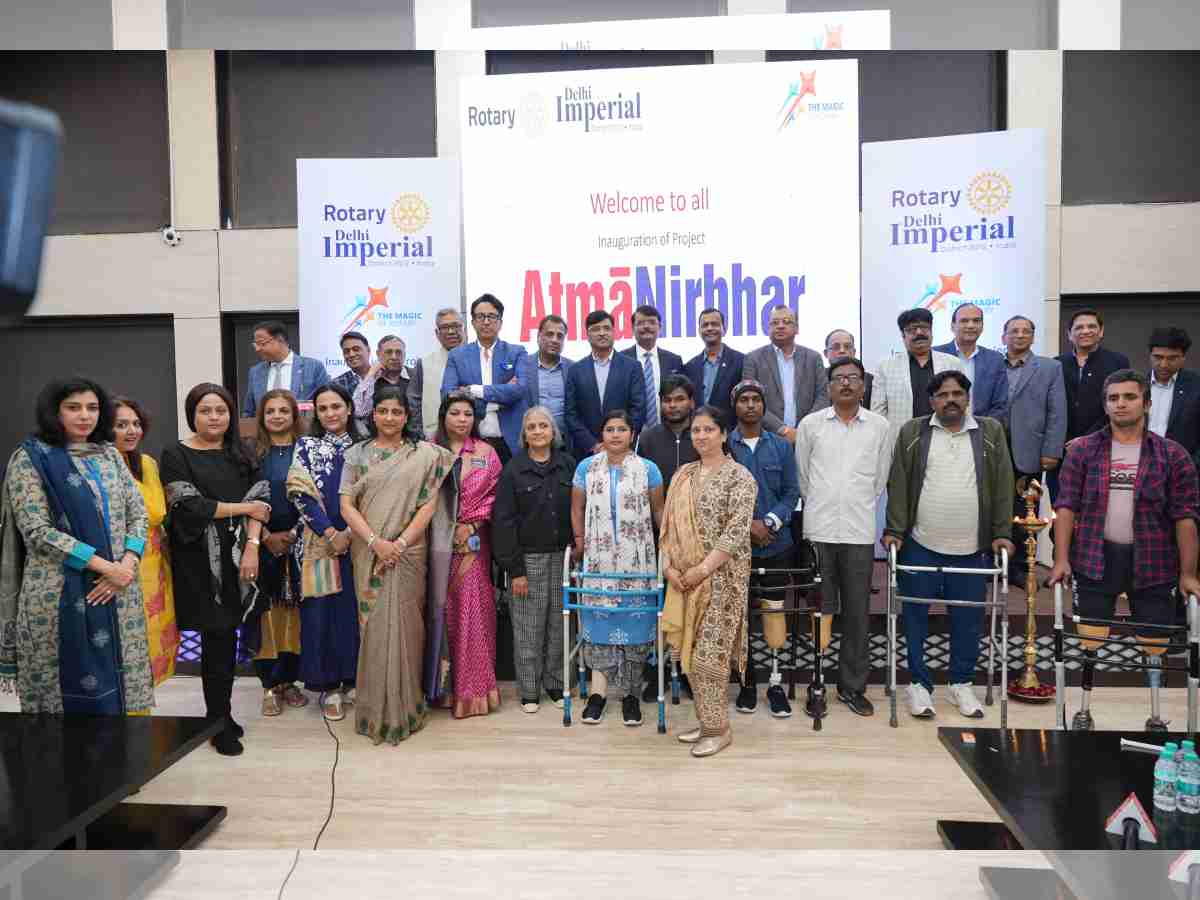In a bid to support individuals with physical disabilities, the Rotary Club Imperial has launched ‘AtmaNirbhar,’ a project that aims to provide prosthetic limbs, vocational training, and long-term rehabilitation. As part of its launch, 400 prosthetic limbs are to be distributed in the first phase, immediately after today’s inauguration at an event held at the Constitution Club of India, New Delhi.
Union Minister of State for Social Justice and Empowerment, Ramdas Athawale, lauded the initiative and stressed the importance of such programs. “Helping people walk again is not just a medical achievement but a step towards an inclusive society. This is the true spirit of social service. Initiatives like ‘AtmaNirbhar’ address the root causes of social issues and empower those in need.”
Despite advancements in medical technology and social welfare schemes, individuals with disabilities often face severe challenges in securing employment and reintegrating into society. Project ‘AtmaNirbhar’ seeks to bridge this gap by offering more than just prosthetics.
The project, led by Rotary Club Imperial President Rajesh Aggarwal seeks to equip beneficiaries with the skills and resources needed to regain independence. Organisers say their goal is to transform at least one life every day over the next year.
Aggarwal highlighted the deeper impact of the mission, stating, “Whenever we see individuals with physical disabilities, many wonder why they can’t improve their lives. But for them, losing a limb often feels like losing everything—their dignity, their purpose, their ability to provide for their families. Through Project ‘AtmaNirbhar’, we are not just giving prosthetic limbs; we are restoring confidence, self-sufficiency, and hope. This initiative is about empowering people to stand tall—both physically and emotionally.”.
Also Read: Stuck in second gear: Only one of city’s 5 major railway stations is disabled-friendly
Rotary Club District Governor Prashant Raj Sharma said that the initiative goes beyond charity. “This is not just about distributing prosthetic limbs—it’s about creating a pathway to independence. We train, mentor, and support recipients so they can truly lead self-reliant lives. Our commitment is to ensure that each individual who receives a prosthetic limb can reintegrate into society as an active and contributing member,” he said.
The initiative will continue identifying and assisting individuals in need, with a focus on long-term support rather than one-time aid.





